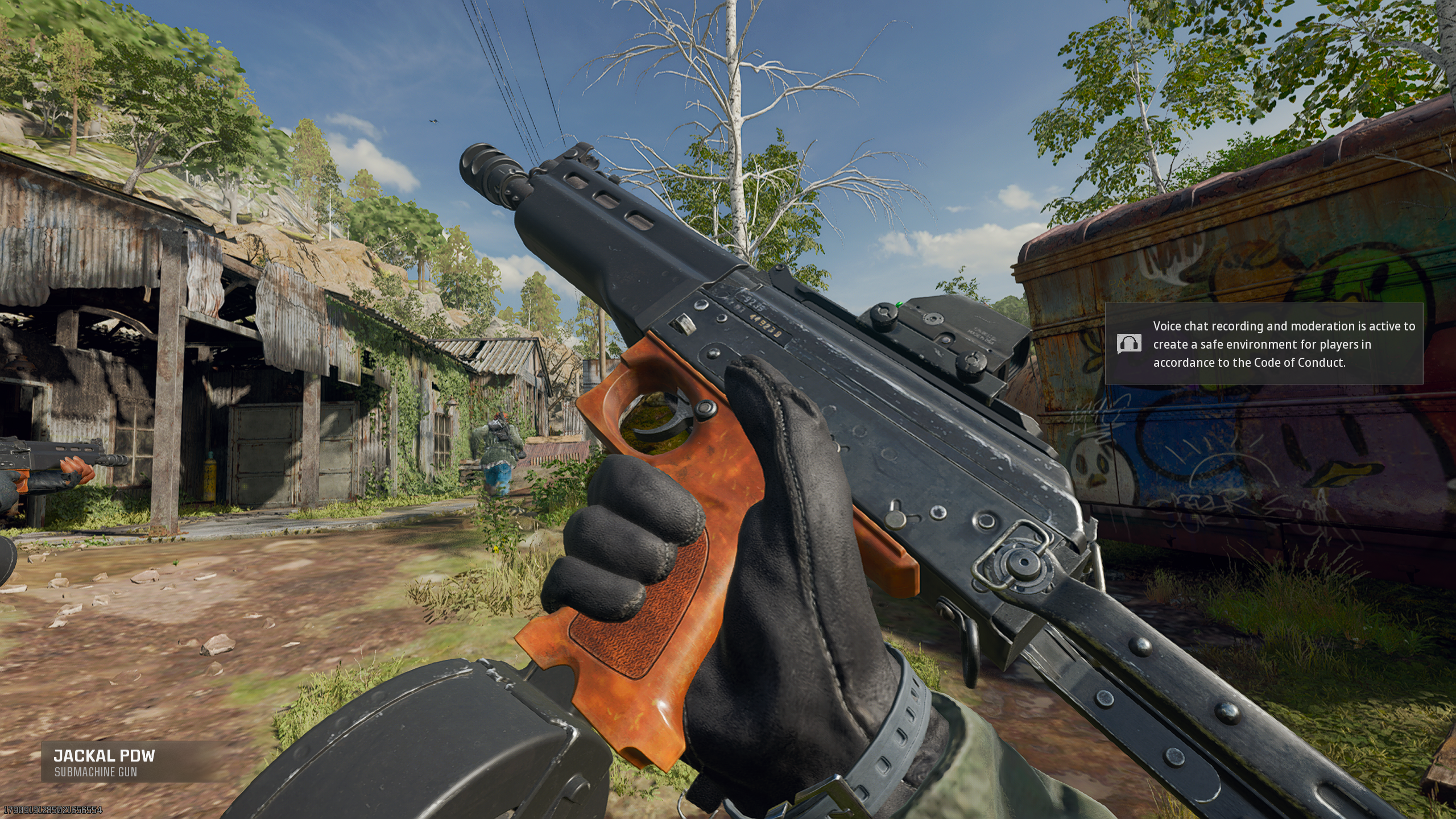Top NAS Picks for 2025: Secure Storage for Games, Movies, and More
If you're the proud owner of one of the best gaming PCs or laptops, and you're looking for a reliable way to back up or transfer all your valuable data, a top-notch SSD or external hard drive might seem like a good choice. However, nothing beats the versatility and convenience of a high-quality NAS (Network-Attached Storage) drive, like our top pick, the Synology DiskStation DS224+.
TL;DR – These are the Best NAS Devices:
 Our Top Pick
Our Top Pick
Synology DiskStation DS224+
0
See it at Amazon!

UGREEN NASync DXP2800
0
See it at Amazon!

Synology DiskStation DS223j
0
See it at Amazon!

Asustor Lockerstor 2 AS6602T
0
See it at Amazon!

Synology DiskStation DS1821+
0
See it at Amazon!

QNAP TS-264-8G
0
See it at Amazon!

Synology DiskStation DS923+
0
See it at Amazon!

ioSafe Duo Pro
0
See it at ioSafe
NAS drives offer significant storage capacity and seamlessly integrate into your home network, allowing for quick and easy data transfer to and from all your devices. Whether it's smartphones, tablets, desktops, or laptops, connecting them to the same network and syncing them up is a breeze, making NAS perfect for managing digital media libraries. However, NAS devices can be quite an investment, so it's essential to choose wisely. We've narrowed down your options to eight excellent NAS devices, each suited for different needs.
Synology DiskStation DS224+
Best NAS
 Our Top Pick
Our Top Pick
Synology DiskStation DS224+
0
Easy-to-use, blazing fast NAS featuring two drive bays, two Gigabit LAN ports, a powerful Intel Celeron processor, and 2GB upgradable RAM.
See it at Amazon
Product Specifications
- Connection: Ethernet, USB 3.2
- RAID Level: SHR, JBOD, RAID 0, RAID 1
- Storage: 2 x 3.5"/2.5" bays
- Size: 9.02" x 9.13" x 6.5"
Pros
- Easy-to-use interface
- Fast quad-core processor
Cons
- No multi-gig LAN port
The Synology DiskStation DS224+ is the perfect choice for those looking for a highly capable yet straightforward NAS. With two drive bays, you can opt for increased storage – up to 32TB, depending on the drive you choose – or a RAID 1 configuration for data redundancy. The two Gigabit LAN ports support higher speeds with Link Aggregation or network failover, although we wish it included 2.5GB or 10GB LAN support for even faster connections.
Synology's versatile apps and software run on an easy-to-use interface, allowing you to store security camera footage, use it as a Plex server, or keep files and photos safe and accessible. Whether you're transcoding 4K media, managing files, or streaming videos, the DiskStation DS224+ delivers exceptional performance, thanks to its powerful Intel Celeron J4125 2.0GHz quad-core processor and 2GB of DDR4 RAM, which can be upgraded for even better performance.
UGreen NASync DXP2800
Best Budget NAS

UGREEN NASync DXP2800
0
With quality hardware, a stylish design, and a modest price, this NAS, which comes with dual drive bays, is ready to back up all your files.
See it at Amazon
Product Specifications
- Connection: Ethernet, USB, HDMI
- RAID Level: JBOD, RAID 0, RAID 1, Basic
- Storage: 2 x 2.5"/3.5" bays, 2 x M.2 PCIe NVMe slots
- Size: Not listed
Pros
- Comprehensive OS and apps
- Multi-gig ethernet
Cons
- No native Plex
The UGreen NASync DXP2800 offers quality hardware and a sleek design at a midrange price. It's powered by an Intel N100 quad-core processor and 8GB of RAM, making it perfect for managing a high-quality video library with ease. It breezes through hardware transcoding, ensuring smooth performance.
UGreen provides a comprehensive OS for simple setup and network configuration, along with extra security features like two-factor authentication to keep your content secure. Backing up files and setting up your own cloud server for remote access is straightforward. Although Plex isn't native, it's easy to install using Docker, and the performance remains excellent.
For storage, the dual SATA drive bays support up to 24TB each, offering ample space for your media or the option for RAID redundancy. UGreen's unique toolless system makes drive installation a breeze. Two M.2 slots are available for NVMe SSDs up to 8TB, providing fast additional storage. The 2.5Gb ethernet ensures speedy file transfers, and other connectivity options include HDMI, USB-C, and USB-A for wide device support.
Synology DiskStation DS223j
Most Affordable NAS

Synology DiskStation DS223j
0
Ultra affordable and easy-to-use NAS that’s perfect for beginners.
See it at Amazon
Product Specifications
- Connection: Ethernet, USB
- RAID Level: Basic, JBOD, RAID 0, RAID 1, SHR
- Storage: 2 x 3.5" bays
- Size: 6.5" x 3.94" x 8.9"
Pros
- Reliable hardware
- Easy to use
Cons
- Lacks multi-gig ethernet port
The Synology DiskStation DS223j is an ideal choice for those new to NAS or with simpler storage needs, offering an affordable yet reliable solution. It comes with Synology's class-leading DiskStation Manager (DSM) OS, which provides a range of comprehensive applications for easy file storage and access across devices.
While the build quality is primarily plastic and requires a screwdriver for drive installation, this isn't typically a frequent task. The DS223j supports up to 32TB of storage without M.2 slots for caching or additional storage and lacks a multi-gig ethernet port for faster transfers. However, its simplicity, reliability, and affordability make it a standout option.
Asustor Lockerstor 2 AS6602T
Best NAS for Power Users and Professionals

Asustor Lockerstor 2 AS6602T
0
Hardware like an Intel Celeron quad-core processor, 4GB of upgradable RAM, drive bays that support 2.5-inch or 3.5-inch SATA drives, and two additional M.2 PCIe NVMe slots ensure this NAS can keep up.
See it at Amazon
Product Specifications
- Connection: Ethernet, USB 3.0, HDMI
- RAID Level: JBOD, RAID 0, RAID 1
- Storage: 2 x 3.5"/2.5" bay, 2 x M.2 PCIe NVMe slots
- Size: 9.06" x 4.25" x 6.44"
Pros
- Dual M.2 PCIe NVMe slots for additional storage
- Supports 10-bit 4K hardware decoding
Cons
- Drive installation is more involved
For power users and professionals seeking a versatile NAS, the Asustor Lockerstor AS6602T is an excellent choice. It features an Intel Celeron quad-core processor and 4GB of RAM, upgradable to 8GB for enhanced performance. The two drive bays support both 2.5-inch and 3.5-inch SATA drives, allowing flexibility with storage options up to 18TB per drive or faster SSDs. Two M.2 PCIe NVMe slots provide additional high-speed storage.
Setting up the network is straightforward, with dual 2.5Gb ethernet ports that can be combined for 5Gb connectivity using link aggregation. This NAS is ideal for speedy backups, virtualization, or as a powerful media center. It also includes an HDMI 2.0 port and supports 10-bit 4K hardware decoding for a superior 4K HDR viewing experience.
Synology DiskStation DS1821+
Best Multi-Bay NAS

Synology DiskStation DS1821+
0
For those who need excess amounts of storage, grab this NAS that delivers eight drive bays for a total 128TB capacity and even has M.2 2280 NVMe slots.
See it at Amazon
Product Specifications
- Connection: Ethernet, USB 3.2
- RAID Level: JBOD, RAID 0, RAID 1, RAID 5, RAID 6, RAID 10, Synology Hybrid RAID (SHR)
- Storage: 8 x 3.5"/2.5" bay, 2 x M.2 PCIe NVMe slots
- Size: 18.2" x 14.4" x 12.5"
Pros
- Wild 128TB capacity
- Hot-swappable drives
Cons
- Can get noisy
If you have an extensive collection of files and data, the Synology DiskStation DS1821+ offers a robust solution. Though priced over $1,000, its eight drive bays support up to 128TB of storage and are hot-swappable, ensuring easy maintenance. For further expansion, the DS1821+ supports additional units to increase to 18 drive bays and includes M.2 2280 NVMe slots for high-speed caching.
The system is powered by a quad-core AMD Ryzen CPU and 4GB of DDR4 ECC memory, expandable to 32GB, providing ample power for future needs.
QNAP TS-264-8G
Best NAS for Media Streaming

QNAP TS-264-8G
0
Enjoy a central location for your media library with this NAS offering two 2.5Gb Ethernet ports, a 4K HDMI output, dual drive bays, and multiple USB 3.2 Gen 2 ports.
See it at Amazon
Product Specifications
- Connection: Ethernet, USB 3.2, HDMI
- RAID Level: RAID 0, RAID 1, RAID 5, RAID 6, RAID 10, JBOD
- Storage: 2 x 3.5"/2.5" bay, 2 x M.2 PCIe slots
- Size: 8.1" x 6.6" x 4.1"
Pros
- Compact design
- Impressive hardware
Cons
- Software is harder to master
Designed specifically for media streaming, the QNAP TS-264-8G provides a central hub for your media library. It features dual 2.5Gb ethernet ports to handle high throughput, ensuring smooth streaming even with multiple users. An HDMI output supports 4K playback, making it perfect for TV setups.
The TS-264-8G includes two 3.5-inch drive bays for extensive storage and two PCIe Gen 3 slots for fast caching or network speed enhancement. It's powered by an Intel Celeron N5105/N5095 quad-core processor and 8GB of DDR4 memory, ensuring smooth 4K video streaming with hardware transcoding.
Synology DiskStation DS923+
Best Network Attached Storage for RAID Configurations

Synology DiskStation DS923+
0
Be extra secure in your data backup, as this NAS offers four drive bays for ample storage and the ability to run it in redundancy with several RAID configurations.
See it at Amazon
Product Specifications
- Connection: Ethernet, USB 3.2, eSATA
- RAID Level: RAID 0, RAID 1, RAID 5, RAID 6, RAID 10, Synology Hybrid RAID (SHR), Basic, JBOD
- Storage: 4 x 3.5"/2.5" bay, 2 x M.2 PCIe slots
- Size: 6.5" x 7.8" x 8.7"
Pros
- Offers various RAID levels
- Expandable storage and RAM
Cons
- No multi-gig LAN port
The Synology DiskStation DS923+ is ideal for those prioritizing data backup security. With four drive bays, you can maximize storage while ensuring redundancy through various RAID configurations, including RAID 0, RAID 1, RAID 5, RAID 6, RAID 10, Synology Hybrid RAID (SHR), Basic, and JBOD.
The DS923+ supports both 3.5-inch and 2.5-inch drives and includes two M.2 2280 NVMe SSD slots for fast caching. It features two 1Gb ethernet ports with Link Aggregation or Failover support and an option for 10Gb connectivity. The dual-core AMD Ryzen processor and 4GB of upgradable DDR4 RAM, combined with the user-friendly DSM operating system, make setup and operation seamless.
ioSafe Duo Pro
Best Rugged NAS

ioSafe Duo Pro
0
Though technically not a NAS, the ioSafe Duo Pro drive keeps your data safe from fire and water while offering RAID configurations as an extra blanket of protection.
See it at ioSafe
Product Specifications
- Connection: USB 3.2
- RAID Level: RAID 0, RAID 1, JBOD, SPAN
- Storage: 2 x 3.5"/2.5" bays
- Size: 11.50" x 5.91" x 9.06"
Pros
- Fireproof and water-resistant
- Offers two robust, long-lasting drive bays
Cons
- Not designed to be a NAS
The ioSafe Duo Pro drive is engineered to protect your data from fire and water, with an IP68 rating that ensures it can withstand full submersion up to 10 feet for 72 hours. While not technically a NAS, it offers robust RAID configurations for added data protection and includes data recovery services.
To use it for network storage, you'll need to share it via an always-on computer or connect it directly to your router through USB.
What to Look for in NAS
NAS devices are not for everyone, but they can solve specific networking issues. If you and your family or housemates share the same network, a NAS allows you to share files centrally. If you're tired of backing up multiple computers individually, a NAS can streamline this process.
What are you using it for?
If you need to access the same tools or files across multiple devices, a NAS can facilitate this. It's not just about storage; it's about accessibility. If you have a large media library you want to access from various devices, consider turning your NAS into a Plex server for seamless access to movies, TV shows, and music.
Go diskless? How many bays?
Most NAS devices come without disk drives, so you'll need to buy them separately. Check the manufacturer's recommendations, as certain disk brands may perform better. Bays are where the disk drives fit, and more bays mean greater potential capacity. Two or more bays are generally recommended, with multimedia systems often requiring more.
Latest Articles































